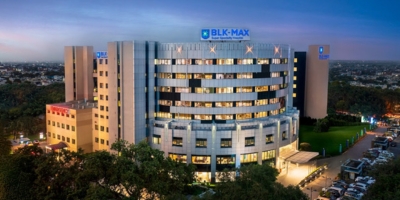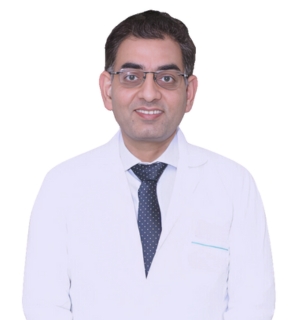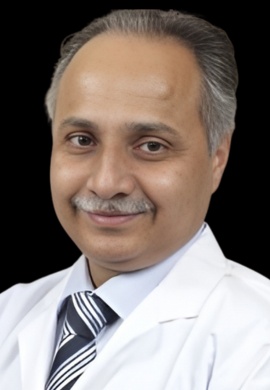Surgery for Lung Cancer in India: Guide to Cost, Hospitals & Surgeons
Get affordable surgery for lung cancer in India. Know costs, hospitals, and leading surgeons, with no compromise on quality and safety.
Read our worry-free guide to know more!
What Is the Cost of Surgery for Lung Cancer in India?
Lung cancer surgery in India costs between $7,800 and $13,500. This is up to 90% more affordable than in the US, where the same surgery costs $100,000 to $300,000.[1]
Here is a comparison of the costs between India and the US:
|
Treatment |
Cost in India |
Cost in the US |
Savings |
| Lung cancer surgery | $7,800 - $13,500 | $100,000 - $300,000 | 90% |
*Prices vary in each case.
The cost in India includes:
- Cost of procedure
- Cost of Room (as per the treatment plan)
- Stay and meals as per treatment plan (only for specific time)
- Medications+ Basic investigations
- Consultation from the primary team on treatment days
Next, let's look at the cost of other treatments for lung cancer.
Source: AnnalsThoracicSurgery[1]
Cost of Alternate Treatments for Lung Cancer
Other affordable options for lung cancer in India, like chemotherapy and immunotherapy, cost between $250 and $85,000. These treatments range from $10,000 to $400,000 in the US, so you can save upto 50%-98% in India.
Here’s a comparison of the costs and savings:
|
Other lung cancer treatments |
Cost in India |
Cost in the US[5] |
Savings |
| Chemotherapy - uses drugs to stop cancer cells from growing and spreading.[2] | From $250 | From $10,000 | 98% |
| Immunotherapy - helps your immune system fight cancer using various FDA-approved drugs.[3] | $1,200 - $85,000 | $15,000 to over $400,000 | 80% |
| Radiation therapy - uses high-dose radiation to kill cancer cells and shrink tumors.[4] | $4,400 - $6,500 | Over $9,000 | 50% |
*Prices vary depending on each case and treatment type.
Want to explore other options besides surgery? Check our complete guide to Immunotherapy for Lung Cancer in India.
Sources: Cancer[2], FDA[3], Cancer[4], Verywell Health[5]
Procedure: Surgery for Lung Cancer in India
Lung cancer starts in the windpipe, central airway, or lung tissue. There are two main types: non-small cell lung cancer (NSCLC) and small cell lung cancer (SCLC).
NSCLC is the most common; surgery is often the best treatment if caught early. Surgery can remove the cancer and offer a chance for a cure, mainly when the cancer hasn’t spread and the lungs are healthy enough to handle the operation.
For those with SCLC, surgery is usually not an option. This type spreads quickly, making it hard to remove entirely with surgery.
Instead, doctors often recommend treatments like chemotherapy, radiation, or immunotherapy.
Source: WebMD[6]
Types of Surgery
There are several types of surgeries for lung cancer, and the best one for you depends on the size and location of the tumor, as well as your overall lung health.
Here are the main types:
Lobectomy is the most common surgery for non-small cell lung cancer (NSCLC). The surgeon removes one of the five lobes of the lung. It's often preferred because it can remove the entire tumor if confined to one lobe.
Sometimes, the entire lung needs to be removed, especially if the tumor is close to the center of the chest. This is called a pneumonectomy.
These surgeries remove a smaller part of the lung. They might be used if removing a whole lobe would leave you with too little lung function.
This surgery removes a section of a large airway and any surrounding cancer. It's like cutting out a sleeve section and sewing the remaining parts back together.
Your doctor will choose the best surgery to maximize recovery and preserve lung function.
Want to know more about surgery as an option for other cancers, such as prostate cancer? Read our blog on Robotic Surgery for Prostate Cancer In India.
Sources: Cancer[7], WebMD[8]
Precautions and Preparations Before the Surgery
Let’s look at a few key things to keep in mind before surgery:
- Tests: You’ll have various tests to ensure you’re fit for surgery and can recover well. These include:
- Blood tests
- Heart tests (ECG)
- Breathing tests (lung function tests)
- Chest X-ray
- Heart and lung function tests (cardiopulmonary exercise test)
- Pre-assessment: This appointment prepares you for surgery. You’ll meet your treatment team, sign consent forms, and ask any questions. Write down your questions beforehand to help you remember.
Prehabilitation: Our hospitals in India offer a program to help you prepare for surgery by focusing on diet, exercise, and mental well-being.
- Breathing Exercises: Learn and practice these to prevent chest infections after surgery.
- Leg Exercises: Helps prevent blood clots. You may also wear compression stockings and receive medications to improve circulation.
- Stop Smoking: If you smoke, try to stop at least four weeks before surgery. Your doctor can provide support to help you quit.
- Hospital Stay: You’ll likely go into the hospital on the day of your surgery or the night before.
Follow these steps and prepare well to ensure your surgery and recovery go as smoothly as possible.
Source: Cancer Research UK[9]
Recovery After Lung Surgery
You’ll typically stay in the hospital for 1 to 7 days, while full recovery can take several weeks to a few months. It depends on the type of surgery you had and your overall health.[10]
Here are the steps to take after surgery:[11]
- Tubes and drains: When you wake up, you might have tubes in your chest to drain excess fluid and air. These will be removed once the drainage slows down.
- Pain management: Your care team will provide medications to help manage any pain.
- Respiratory therapy: A respiratory therapist may assist you with treatments to help your lungs function better. This might include using a device called a spirometer.
- Walking and movement: Ask your nurses when you can start walking again. Moving around as soon as you can helps prevent complications.
- Incision care: Learn how to change your surgery bandages and care for your healing incision.
- Going home: Before you leave the hospital, your doctor or nurse will give you detailed instructions on recovering at home. Follow these guidelines carefully.
And the follow-up care includes:[12]
- Regular check-ups: You’ll have regular appointments with your doctor or specialist nurse to monitor your recovery. These appointments will become less frequent over time.
- Tests: During follow-ups, you may have blood tests, X-rays, and scans to check your progress.
- Raise concerns: Use these appointments to discuss any problems or worries. You don’t have to wait until your next visit; contact our advisors or the hospital staff if you have any concerns between appointments.
- Emotional support: It’s normal to feel anxious about your follow-ups. Talk to someone close to you about how you’re feeling. Counseling can also be beneficial during or after treatment.
Ensure a smooth recovery after lung surgery with these steps and following your doctor’s instructions.
Sources: Cancer[10], WebMD[11], Cancer Research UK[12]
Side Effects of Lung Surgery
After lung cancer surgery, you may experience some side effects as your body heals.
Here are the most common ones to be aware of:
- Pain: Pain near the incision site can last for weeks or even months, especially if the surgery involves a thoracotomy (a long chest incision).
- Fatigue: Feeling tired and weak is normal and can last for some time after surgery.
- Breathing problems: Some breathlessness is common, especially if part or all of a lung is removed. This usually improves over time with exercise.
- Infections: There is a wound, chest, or urinary tract infection risk. Symptoms include fever, shivering, feeling unwell, and redness or swelling around the wound.
- Blood clots: Blood clots in the legs (deep vein thrombosis) or lungs (pulmonary embolism) can occur due to reduced movement after surgery. Symptoms are swelling, redness, chest pain, and shortness of breath.
Less Common Side Effects
- Air leak: Air might leak from the lung into the pleural space, potentially requiring a chest drain to help the lung expand again.
- Bleeding: There could be bleeding immediately after surgery due to a leaking blood vessel or clotting issues.
- Long-term pain: Some people experience long-term nerve pain along the operation scar. This pain can gradually reduce over time but may persist for some.
You can manage these side effects with painkillers or antibiotics, along with exercises to prevent blood clots.
If you notice severe or worsening symptoms, please reach out to your healthcare team promptly. They can provide the necessary support and treatment to help you recover.
Source: Cancer Research UK[13]
Find more insights on lung cancer stats, risk factors, and surgery steps in the next sections.
Overview of Lung Cancer
Lung cancer is a severe illness and the leading cause of cancer-related deaths worldwide. Knowing the basics can help you recognize symptoms early and get the necessary care.
Common symptoms include a persistent cough, chest pain, and shortness of breath. It's important to see a doctor early because lung cancer is often found late when treatment is harder.
Early detection through screening can also save lives by catching cancer sooner when it's easier to treat. Let’s explore the causes of lung cancer next.
Source: WHO[14]
Lung cancer starts when abnormal cells grow uncontrollably in the lungs, impacting breathing and overall health.
Primary risk factors include:
- Smoking: About 85% of lung cancer deaths each year are caused by smoking, including secondhand smoke exposure.[14]
- Occupational hazards: Asbestos[15], silica, and diesel exhaust can increase the risk, especially in certain industries.
- Air pollution: Regular exposure increases the risk, contributing to about 29% of lung cancer cases.[16]
- Previous lung diseases: Conditions like COPD and idiopathic pulmonary fibrosis raise the risk, particularly in smokers.
- Radon gas: Naturally occurring and potentially hazardous, especially when combined with smoking.
- Family history: Having a close relative with lung cancer increases your risk.
Knowing these factors can help you prevent issues and seek medical help early if you notice any symptoms.
Source: WHO[14],[16], Cancer Research UK[15]
Surgery is often used to treat lung cancer, especially in cases of non-small cell lung cancer (NSCLC) caught early. It offers a chance to remove the tumor completely and potentially cure the disease, provided the lungs are healthy enough for the procedure.
Source: WebMD[17]
Lung cancer surgery involves several steps to ensure your comfort and safety:
Before surgery, a nurse administers a tablet or injection to help you relax, typically about an hour beforehand. This may cause your mouth to dry, but you can rinse it with water to keep it moist.[18]
Anesthesia is administered in the anesthesia room to induce a deep sleep, ensuring you feel no pain during the procedure. This process includes:[18]
- Insert a small tube into your back to deliver pain medication directly to the spinal cord area.
- Place a cannula in your arm to provide fluids and anesthesia throughout the surgery.
Depending on your condition and the type of surgery, you can have:[19]
- Thoracotomy: Involves making a large incision between the ribs to access and treat the affected lung.
- Video-assisted thoracic surgery (VATS): Uses small incisions and a camera to perform precise operations, often resulting in a faster recovery than traditional surgery.
These steps minimize infection risks and ensure the best possible outcome for your treatment.
Sources: Cancer Research UK[18] and WebMD[19]
Global Perspective on Lung Cancer
Lung cancer is a major concern worldwide, affecting millions each year:
- In 2022 alone, there were about 2.5 million new cases globally.
- Adenocarcinoma is the most common type of lung cancer worldwide, especially in women.
- Certain regions, like Eastern Asia and Eastern Europe, have higher rates of lung cancer.
- Lung cancer is the top cause of cancer deaths for women in 23 countries, including China and the USA.
Source: Wiley[20]
Although these statistics may seem discouraging, ongoing research aims to improve outcomes. Discover more in the following section.
Success Rate of Surgery for Lung Cancer in India
In a recent study conducted by Indian scientists, it was found that the overall success rate of lung cancer surgery in India ranges from 71% to 74%. These results show how surgery can effectively manage lung cancer in India, despite its deadly nature, with the right hospital and doctor.
Let's explore the best options for your treatment.
Source: PubMed[21]
Best Hospital for Surgery for Lung Cancer in India.

JCI-accredited, it is one of the largest private hospital. It ranks among the top 10 multi-specialty hospitals.
Dedicated services for medical tourists from over 100+ countries.
It serves local and international patients, specializing in orthopedic treatments, cancer, bariatric surgery, and cardiology with advanced, European-standard equipment.
- 60+ Years of Experience
- JCI Accredited
- NABH Accredited
- Advanced technology medical oncology like immunotherapy, targeted therapy and chemotherapy
- Leading medical oncology specialists with organ-specific expertise
- Round-the-clock critical care with OPD services, which are designed for an organ-specific approach

NABH-accredited, this hospital is a renowned 250-bed hospital in New Delhi.
The hospital is well-equipped with Tesla MRI and Cath Labs and 50+ critical beds. With this, it offers Orthopaedics, Cardiology, Urology, Neurology, Paediatrics, Obstetrics, and Gynaecology.
- NABH Accredited
- 300+ Doctors
- 22+ Departments
- JCI-accredited with high-tech equipment like Da Vinci Robot, Novalis Tx for IMRT/IGRT, Radiosurgery, HIPEC and SRS/SRT for oncology care
- Pioneers in all kinds of cancer treatment, including immunotherapy, hormone therapy and stem cell transplant
- Highly skilled oncology team, including specialists with over 4 decades of experience
Best Specialist for Surgery for Lung Cancer in India.

Dr. Surender Kumar Dabas( BLK-Max Super Speciality Hospital )
With over 20,000 robotic surgeries, Dr. Dabas is a renowned cancer surgeon, trained at the University of Chicago.
He specializes in surgical oncology and mentors surgeons globally to advance innovative cancer treatment techniques.
Education
- Maulana Azad Medical College, New Delhi.
- Lady Hardinge Medical College, New Delhi.
- National Board of Examination, India.
Memberships
- International Guild of Robotic & Endoscopic Head & Neck Surgery
- Indian Association of Surgical Oncology
- Robotic & Endoscopic Head - Neck Surgeons

Dr. Harit Chaturvedi( Max Super Speciality Hospital, Saket )
Dr. Harit Chaturvedi is the Chairman of Max Institute of Cancer Care.
He is also the Director of Surgical Oncology at Max Super Speciality Hospital, Saket.
He leads a team of over 80 oncologists and has performed surgeries at live workshops.
Dr. Chaturvedi has also supported cancer awareness and anti-tobacco campaigns for over a decade.
Education
Dr. M.G.R Medical University, Chennai, India.
Memberships
- Association of Surgeons of India
- Indian Association of Surgical Oncologists
- Association of Breast Surgeons of India (ABSI)
Why MTC Partners for Lung Cancer Surgery?
Looking for the best care for lung cancer surgery in India? Our MTC partners are dedicated to your well-being:
- Expert leadership: Specialists with over 3 decades of surgical oncology expertise bring to the table personalized treatment plans for you. Our partner hospitals and experts hold international memberships and affiliations with prestigious organizations like
- Harvard Medical School, Boston, USA,
- American Society of Clinical Oncology (ASCO),
- European Society of Thoracic Surgeons (ESTS).
- Advanced technology: We use advanced tools like the Da Vinci XI Surgical Robotic System and Novalis TX for precise treatments. Minimally invasive procedures like video-assisted thoracic surgery (VATS) and robotic-assisted surgery are also available.
Comprehensive support: Our partners provide holistic care tailored to you from diagnosis to recovery. Our oncology specialists work together to create a personalized treatment plan that includes advanced diagnostic tests and supportive therapies.
Conclusion
Lung cancer surgery in India offers hope against this deadly disease, with a success rate of almost 75%. With experts like Dr. Chaturvedi and the latest technologies, you'll benefit from minimally invasive procedures, smooth recovery, and full support.
Is Surgery for Lung Cancer Safe in India?
Lung cancer surgery in India is safe and effective, often resulting in better outcomes than global averages. You can expect:
- Longer survival: Patients live for 16 months without the cancer growing, and overall survival is 66 months.[22]
- Minimally invasive techniques: Less pain and quicker recovery with video-assisted thoracoscopic surgery (VATS).[23]
- Advanced diagnostics: Precise planning using PET-CT scans and MRI.[24]
- Targeted therapies: Personalized treatment guided by innovative molecular tests.
Sources: Annals of Oncology[22], JTO[23], ResearchGate[24]
FAQs
Lung cancer surgery in India costs between $7,800 and $13,500. Compared to the US, where the surgery ranges from $100,000 to $300,000, patients can save up to 90% on treatment expenses.
Treatment for lung cancer in India aims to help patients live longer and healthier lives. A PubMed study found that patients who had curative surgeries in India had a survival rate of 74% after 2 and 71% after 3 years.
Source: PubMed[25]
Once lung cancer reaches stage 4, it's challenging to treat. However, alternative treatments at our partner hospitals in India can help you live longer and feel better. Detecting lung cancer early is key because symptoms like chest pain, coughing up blood, wheezing, and shortness of breath often appear later.
Source: JacksonVille[26]
References
- AnnalsThoracicSurgery: Initial and Longitudinal Cost of Surgical Resection for Lung Cancer - The Annals of Thoracic Surgery
- Verywell Health: How Much Does Lung Cancer Treatment Cost?
- NCBI: Cancer Chemotherapy
- FDA: Oncology (Cancer) / Hematologic Malignancies Approval Notifications
- Cancer: Radiation Therapy for Cancer
- WebMD: Surgery for Lung Cancer (Thoracotomy): Benefits and Risks
- Cancer Research UK: Before your operation for lung cancer
- WHO: Lung cancer
- Wiley: Global cancer statistics 2022: GLOBOCAN estimates of incidence and mortality worldwide for 36 cancers in 185 countries
- PubMed: Surgery for lung cancer: insight from a state cancer centre in India
- Annals of Oncology: 371P Real-world insights into treatment patterns and outcomes in stage III non-small cell lung cancer (NSCLC): KINDLE study India analysis
- JTO: Lung Cancer in India
- ResearchGate: (PDF) Surgery for lung cancer—the Indian scenario
- JacksonVille: HEALTH WAVES: Catch lung cancer before it’s too late



